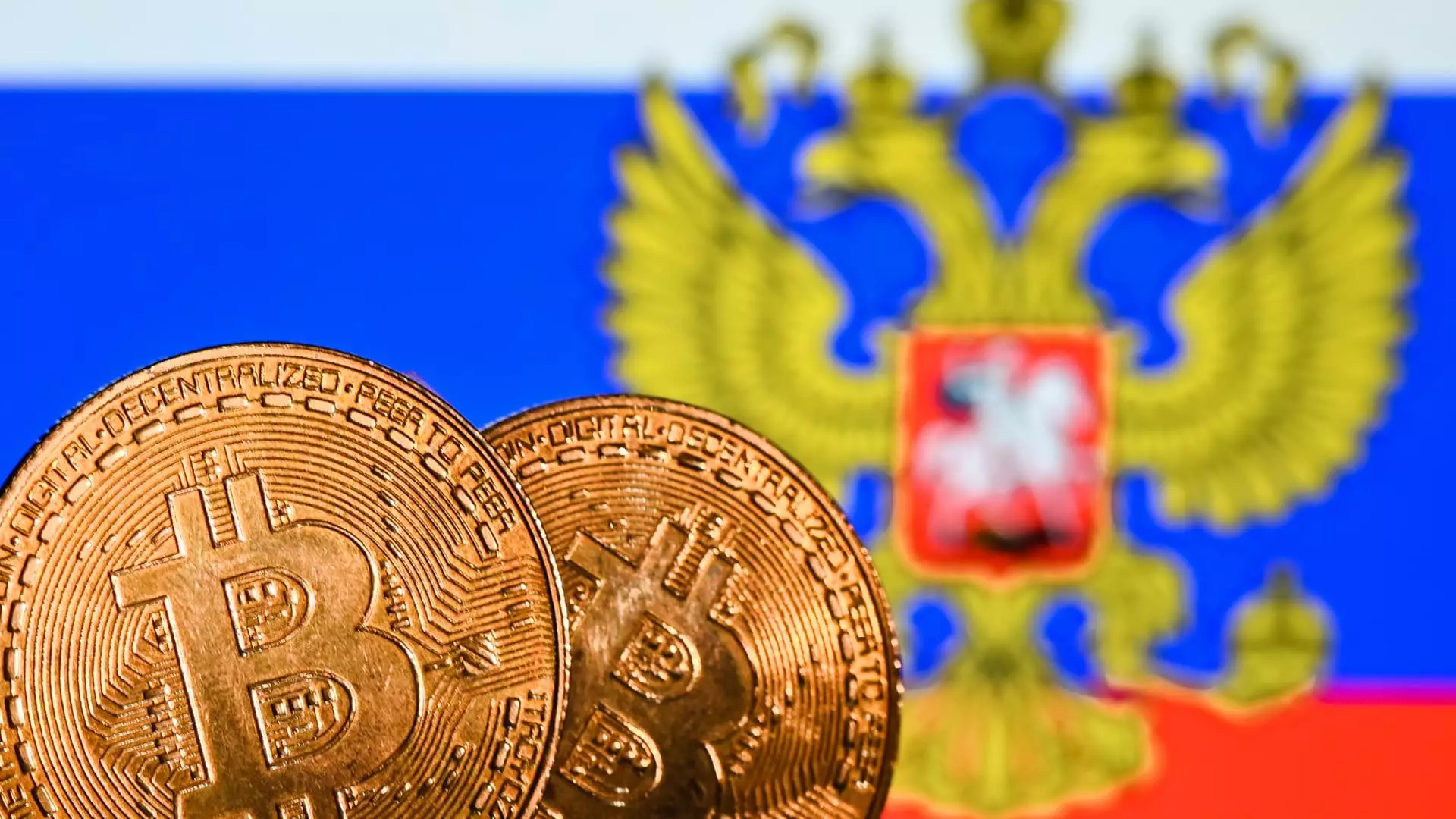In a significant move, Russian lawmakers have given the green light to a new law that permits the use of cryptocurrency for international payments. This decision comes as a response to the financial pressure Russia faces from Western sanctions. The State Duma, which serves as the lower house of the Russian Parliament, approved the legislation on Tuesday, paving the way for businesses to engage in cross-border trade using cryptocurrencies. This shift in policy marks a historic decision in the financial sector for Russia.
Anatoly Aksakov, the head of the Duma, emphasized the importance of this decision, highlighting the potential benefits of embracing cryptocurrency for international transactions. This move is seen as a reflection of the evolving landscape in the financial world, where digital assets like Bitcoin are gaining mainstream acceptance. Mati Greenspan, CEO of Quantum Economics, noted that Russia’s growing interest in cryptocurrency is a logical step as decentralized transactions offer a level of freedom and security that traditional banking systems cannot provide.
The surge in Bitcoin prices over the past year has generated optimism among investors and policymakers alike. The approval of the first U.S. spot Bitcoin exchange-traded fund and the reduction in token supply through halving events have contributed to the bullish sentiment surrounding cryptocurrencies. Russia’s decision to allow businesses to engage in international transactions using crypto is a strategic move to navigate the challenges posed by international sanctions.
Russia’s Central Bank Embraces Crypto
In addition to enabling Russian firms to conduct international transactions via cryptocurrency, the Russian central bank will also leverage private digital currencies for moving money overseas. Central Bank Governor Elvira Nabiullina announced that crypto-based payments will be implemented before the end of 2024. This shift in policy signals a departure from the central bank’s earlier proposal to ban the use of crypto, citing concerns about financial stability and monetary policy sovereignty.
Exploring a Digital Ruble
Russia is also exploring the possibility of introducing a digital version of the ruble, with plans to transition from a pilot phase to mass implementation by July 2025. Central bank digital currencies (CBDCs) operate differently from cryptocurrencies like Bitcoin, as they are issued directly by a government and mimic fiat currencies in digital form. The adoption of a digital ruble aligns with global trends towards digitizing traditional currencies for enhanced efficiency and security in financial transactions.
The Global Trade Perspective
Mati Greenspan of Quantum Economics emphasized that Russia’s decision to accept cryptocurrency aligns with the broader goals of enhancing global trade. By leveraging decentralized payment systems, Russia can establish cross-border transactions with countries and businesses that would otherwise be restricted due to sanctions imposed by the U.S. and its allies. The global landscape of international trade is evolving, with cryptocurrencies playing a pivotal role in facilitating economic interactions across borders.
A Tool for Countering Illicit Activities
While cryptocurrencies have been associated with illicit activities in some cases, proponents argue that digital assets offer inherent transparency and security through blockchain technology. The public nature of blockchain networks provides a verifiable record of transactions that is resistant to tampering or fraud. This aspect makes cryptocurrencies a useful tool for combating illicit financial practices and enhancing regulatory oversight in the digital economy.
By embracing cryptocurrency for international payments and exploring the development of a digital ruble, Russia is positioning itself at the forefront of financial innovation. The adoption of digital assets opens up new possibilities for cross-border trade and economic cooperation, while also addressing the challenges posed by restrictive sanctions. As the global economy continues to evolve, the integration of cryptocurrencies into mainstream financial systems represents a paradigm shift towards a more interconnected and secure financial ecosystem.

